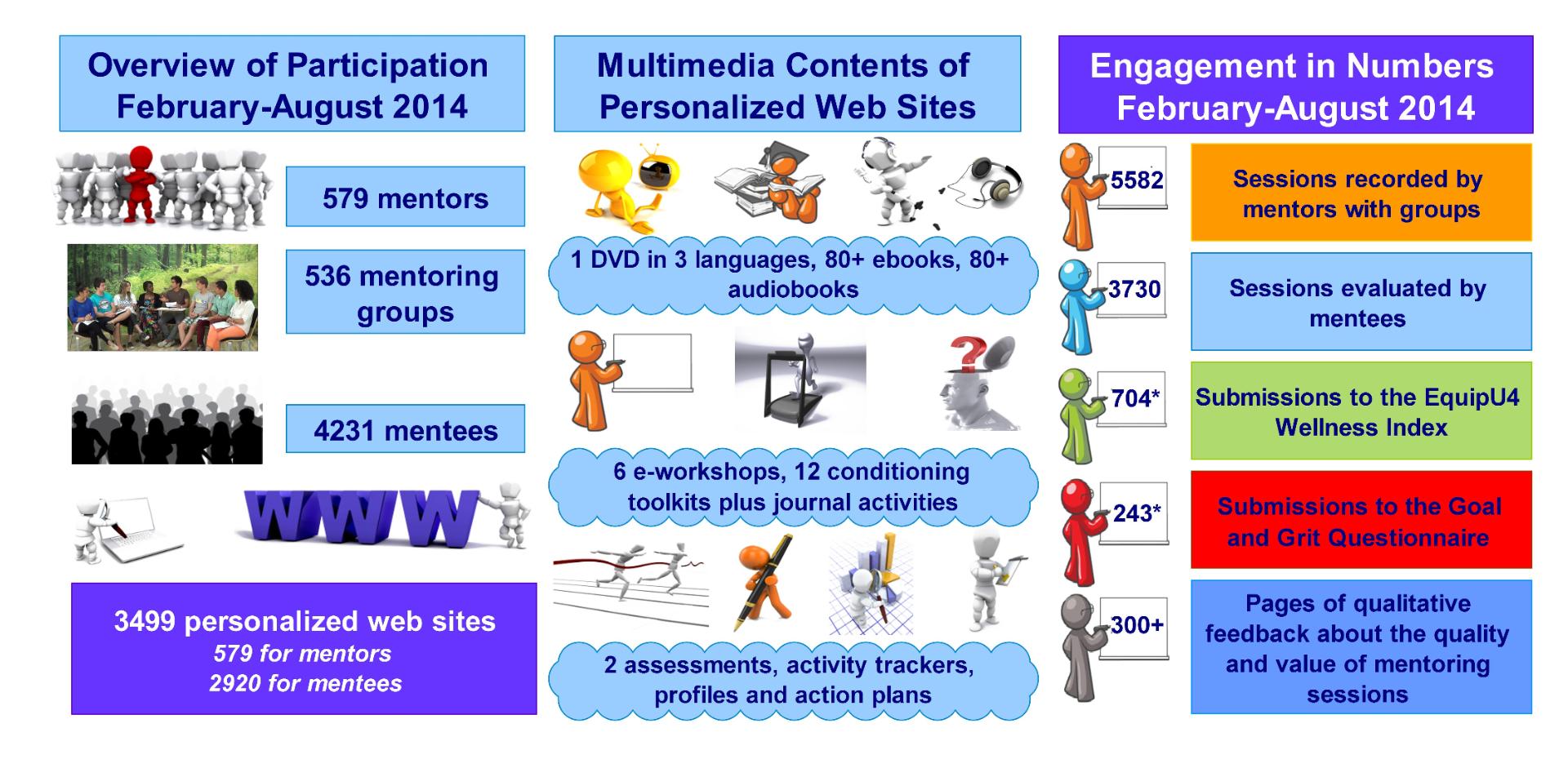Measuring the Impact of BeWell
For an educational membership like BeWell we typically want to determine whether a positive change in success rates occurs(performance), whether the members (students) have grown in terms of specific graduate attributes, or another desired outcome like wellness (development) and whether they enjoyed the experience or not. Quantitatitve, qualitative and mixed methods research tools are utilized to measure these three outcomes.
The preliminary indicators are that BeWell did indeed have a positive impact on the academic performance of our first-year students, but we have also realized that this is a very complex issue wih many angles (and many variables) to consider. Another very interesting exercise was to utilize all the available data in a mixed methods environment and to determine the best composition of a mentoring group. We chose to use Dedoose for all our qualitative and mixed methods research topics. As is also indicated in the diagram below, Dedoose was also used to determine if our mentors did in fact grow in terms of our university's graduate attributes and wellness goals, and also to evaluate the positivity of their whole BeWell experience. The quantitative session ratings of both mentors and mentees were very high (above 80%) and the encouraging news is that mentees actually rated the sessions higher than the mentors themseves (very positive feedback for mentors!).
A meaningful application of data analytics within this environment is to identify "non-academic" predictors of academic performance, and to use this information to further improve the developmental resources offered to the membership. The data from 2013 and 2014 confirmed what other researchers world-wide have found: Grit, a growth mindset and a well balanced wellness lifestyle are all important predictors of performance at university level, and more students should be encouraged to utilize the available BeWell resources on these topics.

